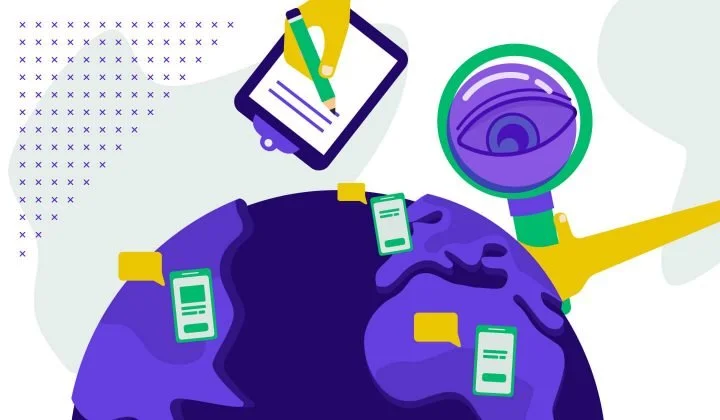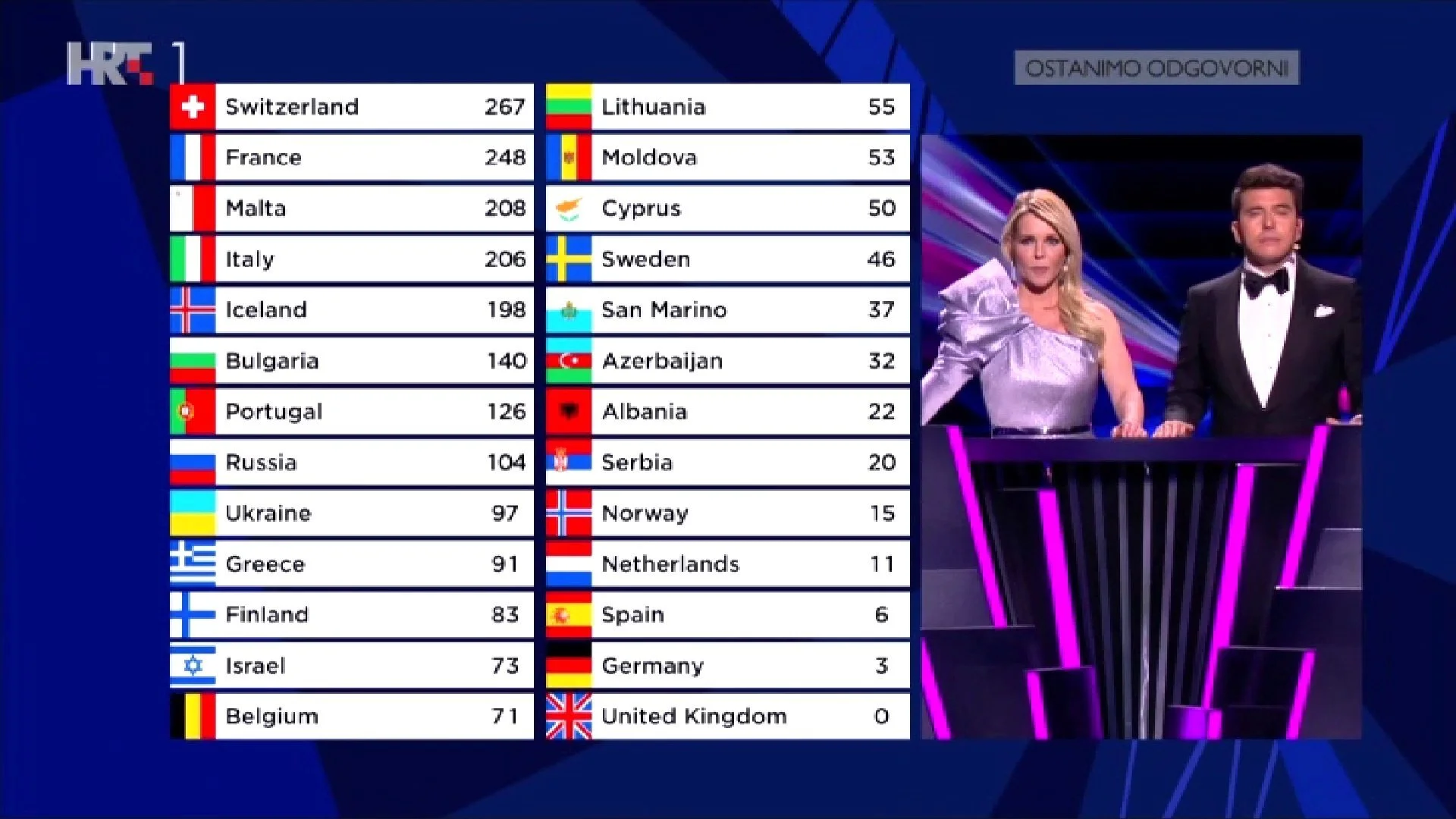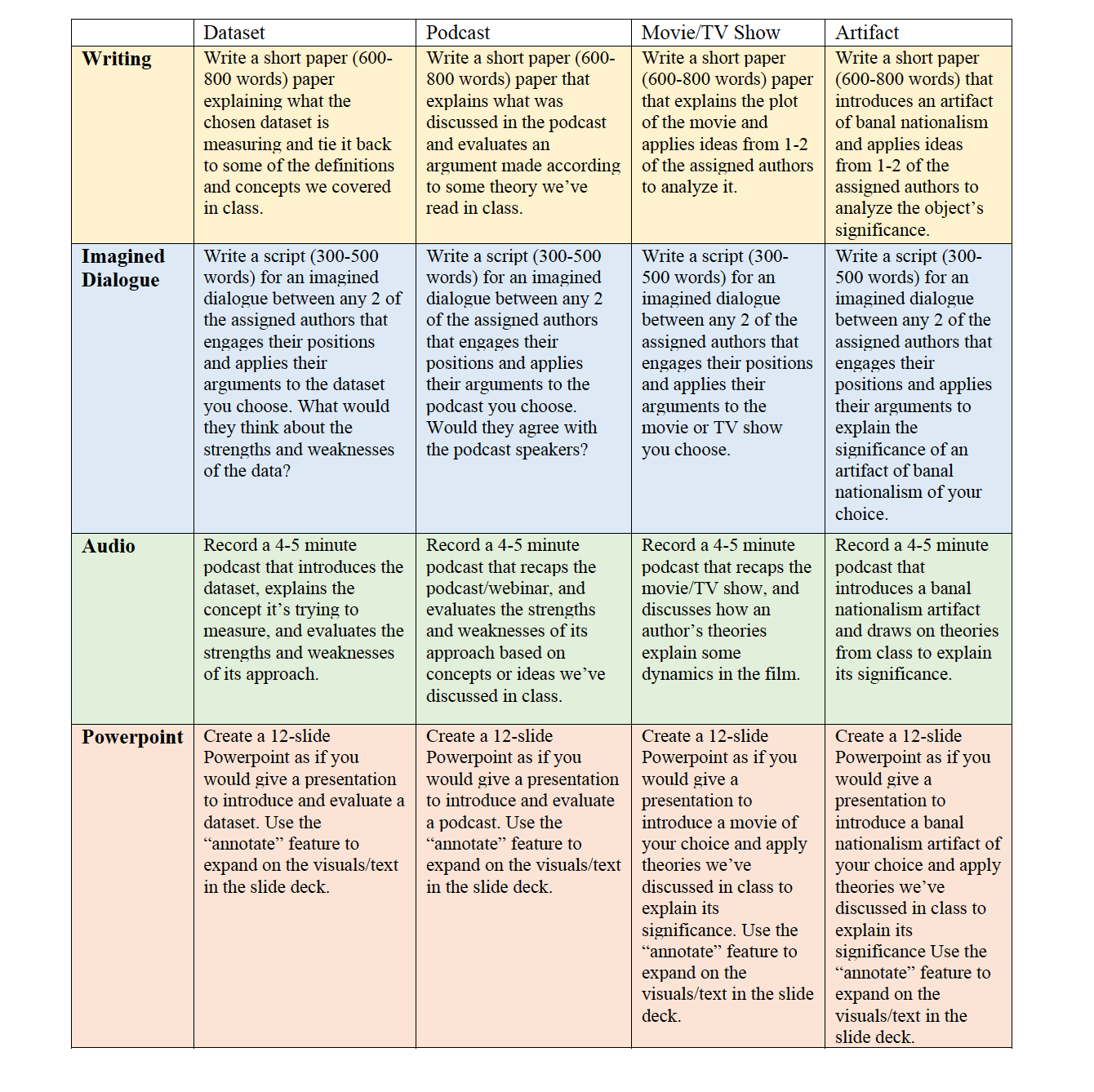Teaching
I believe the best way to learn political science is to do political science. In my classroom, students learn about comparative politics and nationalism through engaging with real-world examples. I strive for my students to be capable of coming up with satisfying explanations to research questions, confident in communicating their findings, and curious about the political and social world around them.
Teaching Experience
Instructor of Record:
Popular Culture and International Politics (Columbia University, Fall 2022)
Theories of International Relations (City College of New York, Fall 2022)
Research Skills in Political Science (Baruch College, Fall 2020)
Nationalism and Ethnic Politics (City College of New York, Summer 2020)
I served as the Lead Teaching Fellow in Columbia University’s Political Science Department from 2019-2020 and completed training toward the university’s advanced Teaching Development Program.
Syllabi
Pedagogical Materials
Choice Board
A “choice board” to give students flexibility in communicating their research findings. For a class I taught on nationalism, I designed the choice board to be completed over four weeks and gave students the option to write a short paper, compose a script for an imagined dialogue between two of the assigned authors, record a podcast, or create an annotated PowerPoint to complete the assignment. The choice board can easily be modified based on your course’s substantive and methodological objectives.
Hidden Curriculum Salons
Together with Elena Barham, I developed a curriculum for a short course (initially taught Fall 2020-Spring 2021) that adapts Jessica McCrory Calarco's phenomenal book A Field Guide to Grad School: Uncovering the Hidden Curriculum for graduate students in political science. We co-facilitated the sessions in Fall 2020-Spring 2021 for graduate students in the Political Science Department at Columbia University. We combined a small amount of lecture with scaffolded reflective exercises to help demystify the political science PhD process, illuminate the discipline's "hidden curriculum", and help first through fourth year graduate students be strategic in designing their graduate school experience.
Slides customized for Columbia University's PhD program and available for Session 1, Session 2, and Session 3, and Session 4.
In addition to these course materials, we wrote a short article about the role of peer-facilitated workshops to address mentoring inequities and inequitable access to professionalization and soft skills formation in the discipline, available here.







